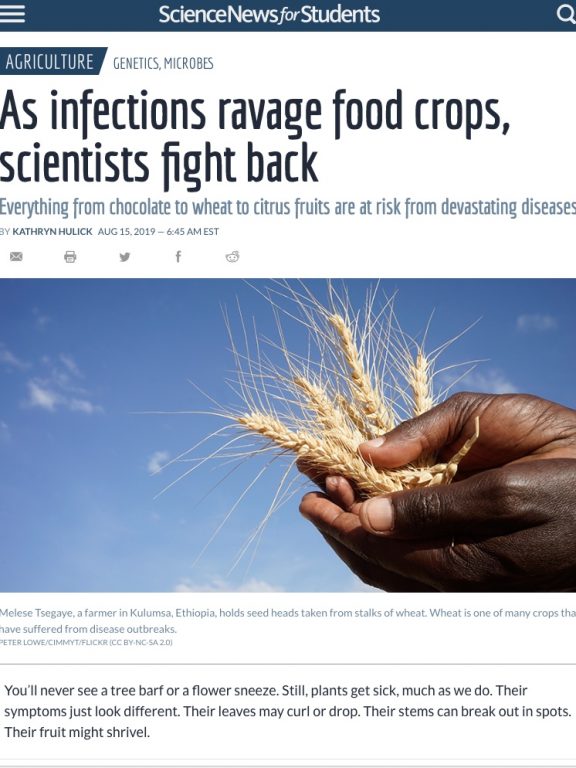As infections ravage food crops, scientists fight back
Science News for Students, August 16, 2019
This article explores the many ways scientists are working to understand and fight diseases in food crops. I discovered that this is a huge topic! Plants may fall sick from viruses, bacteria, or fungi. Insects and other small critters may spread disease from one plant to another. Pesticides or antibiotics may help in some cases, but many times these after-the-fact approaches aren’t good enough. The best solution is for scientists to breed new crops that resist disease.
One topic I didn’t really have space to explore in detail in the article is GMOs. Personally, I support them. In fact, it annoys me when I see “non-GMO” on products that I buy. In many cases, the result of gene editing is something we could attain through traditional breeding. Gene editing can greatly speed up the process. Eating this type of GMO product is not really any different from eating an organically home-grown ear of corn, which has been bred over many generations to be extremely different than its wild ancestors.
I understand that there are cases in which genes from different species may be mixed, and I can definitely see how we’d need to proceed carefully in these cases. But the positives of what we could accomplish with widespread (and ethically sound) gene editing of food crops greatly outweigh the negatives in my opinion.

